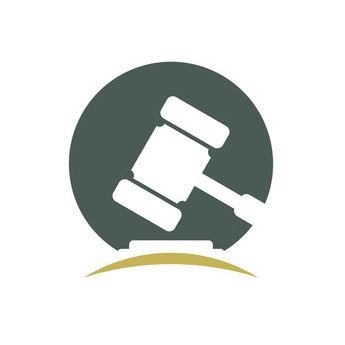Best State, Local, and Municipal Law Lawyers in Guatemala
Share your needs with us, get contacted by law firms.
Free. Takes 2 min.
Or refine your search by selecting a city:
List of the best lawyers in Guatemala
About State, Local, and Municipal Law in Guatemala
State, local, and municipal law in Guatemala govern the various legal frameworks that apply at different levels of government. These laws are designed to provide structure and governance for municipalities, ensuring the effective administration of local services, development plans, and community needs. The country is divided into 22 departments, and each operates with a degree of autonomy under the broader national legal framework. Local laws accommodate the cultural and geographic diversity of each region, and they can encompass a wide range of issues including land use, local taxation, public services, and local governance.
Why You May Need a Lawyer
Engaging a lawyer who specializes in state, local, and municipal law can be crucial in several scenarios:
- Property and Land Use: Navigating zoning laws, property taxes, and land disputes.
- Business Regulation: Complying with local business permits and regulations.
- Local Governance: Advocating for or against local government measures or policies.
- Public Services: Addressing issues related to public utilities and infrastructure projects.
- Dispute Resolution: Settling disputes with local authorities or entities.
Local Laws Overview
Local laws in Guatemala are characterized by their responsiveness to the unique needs of each department. Here are some key aspects:
- Zoning and Development: Local governments dictate land uses through zoning regulations which affect urban planning and development projects.
- Environmental Regulations: Strict local laws govern environmental conservation to protect Guatemala’s rich biodiversity.
- Taxation: Municipalities impose various local taxes, including property tax, to fund public services.
- Public Participation: Local governments encourage participatory budgeting and citizen involvement in governance.
- Cultural Heritage Preservation: Measures to protect indigenous practices and cultural sites are often enacted at the local level.
Frequently Asked Questions
1. What is the role of municipalities in Guatemala?
Municipalities are responsible for local governance and service delivery, including waste management, water supply, and local economic development.
2. How are local taxes determined?
Local taxes are set by municipal councils based on local budgetary needs and regional policies.
3. What should I do if I face a land dispute?
Contact a lawyer specializing in local law who can navigate the complexities of land ownership and zoning regulations.
4. Can local laws affect my business operations?
Yes, local permits, zoning laws, and business regulations must be adhered to for legally operating a business in Guatemala.
5. How do I participate in local governance?
Attend municipal government meetings or participate in public forums and community planning events.
6. Are there specific local laws for businesses?
Each municipality may have unique business registration requirements and operational standards.
7. How does local law address environmental concerns?
Local governments enforce environmental regulations through specific ordinances and community initiatives to protect natural resources.
8. What is the process for resolving a dispute with a municipality?
Dispute resolution often involves mediation, administrative appeals, or legal action through the courts.
9. How can I obtain information about local laws?
Municipal websites and local government offices can provide access to local ordinances and regulations.
10. What legal avenues exist for challenging a local law?
Citizens can file lawsuits in administrative courts or engage with elected officials to address grievances related to local legislation.
Additional Resources
For further assistance, consider these resources:
- Guatemalan Bar Association: Offers a directory of qualified lawyers in various specializations.
- Ministry of the Interior: Provides information on state and local governance policies.
- Municipal Offices: Local government offices can offer guidance on municipal laws and regulations.
- Legal Aid Organizations: Nonprofits that provide free or low-cost legal services to those in need.
Next Steps
If you require legal assistance in state, local, or municipal law in Guatemala, consider the following steps:
- Research and identify a lawyer or law firm specializing in local and municipal law.
- Gather all relevant documents and details surrounding your legal issue.
- Schedule a consultation to discuss your case and explore your legal options.
- Stay informed about local laws that could impact your legal matter or rights.
Acting promptly and engaging the right legal expertise is essential for effectively navigating the complexities of state, local, and municipal law in Guatemala.
Lawzana helps you find the best lawyers and law firms in Guatemala through a curated and pre-screened list of qualified legal professionals. Our platform offers rankings and detailed profiles of attorneys and law firms, allowing you to compare based on practice areas, including State, Local, and Municipal Law, experience, and client feedback.
Each profile includes a description of the firm's areas of practice, client reviews, team members and partners, year of establishment, spoken languages, office locations, contact information, social media presence, and any published articles or resources. Most firms on our platform speak English and are experienced in both local and international legal matters.
Get a quote from top-rated law firms in Guatemala — quickly, securely, and without unnecessary hassle.
Disclaimer:
The information provided on this page is for general informational purposes only and does not constitute legal advice. While we strive to ensure the accuracy and relevance of the content, legal information may change over time, and interpretations of the law can vary. You should always consult with a qualified legal professional for advice specific to your situation.
We disclaim all liability for actions taken or not taken based on the content of this page. If you believe any information is incorrect or outdated, please contact us, and we will review and update it where appropriate.
Browse state, local, and municipal law law firms by city in Guatemala
Refine your search by selecting a city.












